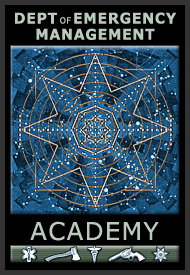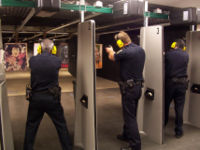Department of Emergency Management/The Academy: Difference between revisions
Gus Thomas (talk | contribs) |
(→Campuses & Instructors: Updated the instructors for the LF Campus) |
||
| Line 23: | Line 23: | ||
:'''NW Division'''<br> | :'''NW Division'''<br> | ||
:'''Little Fawn (LF) Campus''' | :'''Little Fawn (LF) Campus''' | ||
:Lead Instructor: [[User: | :Lead Instructor: [[User:Grifflik|Grifflik]] | ||
:Field Instructor: | :Field Instructor: | ||
:Assistant Instructor: [[User: | :Assistant Instructor: [[User:Gus Thomas/Jack Byrnes|Jack Byrnes]] | ||
: | :Active Lieutenant: | ||
|} | |} | ||
Revision as of 00:24, 1 June 2009
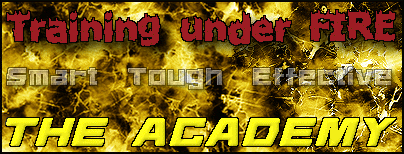
|
The Academy serves as the survival and tactics training center for all groups under the Department of Emergency Management. The Academy has four campuses, one in each of of the DEM Command Divisions within Malton. New recruits will work on training missions with other recruits under the direct supervision of The Academy's Instructors, and will remain in The Academy until they have either learned the minimum skill set required by the group they joined or for one week, whichever is longer. As a cooperative effort of the DEM member organizations, it is designed to provide uniform training and produce smart, tough and effective graduates who can make a difference in helping to stem the zombie onslaught in Malton. Exceptional recruits may receive their first promotion on graduation.
Training
The campuses are NOT located in "safe" areas. Instead, they will be mobile, moving to the hot spots in their Divisions where recruits can be trained on the front lines. The DEM is here to help save lives and combat the zombie menace. New recruits will be helping in those efforts from the very beginning.
Training missions are designed both to help raw recruits learn the basic skills required to survive and contribute as well as to learn DEM operational procedures. All together the groups under the DEM have over 400 active members working across all of Malton, and it takes a lot of cooperation to organize the efforts of so many individuals. By the time you graduate The Academy and receive your initial assignment, you will have the necessary skills and training to contribute quite effectively to the work we do. But don't think that Academy Training missions are milk runs, our training missions will place you and your fellow trainees in some of the most difficult areas in your Division, doing vital support work! You will not only be learning and practicing new skills, but you will see how our teams work together and even have the opportunity to try being an officer for a day, leading your team through an assignment.
Campuses & Instructors
Academy Commandant: Allison Wolf
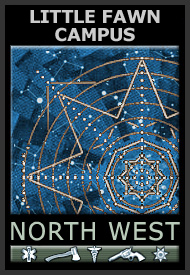 |
|
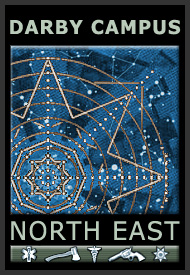 |
|
| File:DEMacadSWlogo.jpg |
|
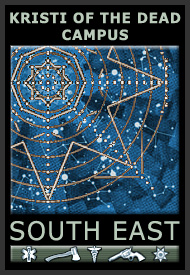 |
|
Academy Policies
As a cooperative effort of all DEM organizations, the Academy's policies are based on input from all relevant groups and are approved by the DEM Council. These policies may be modified as the Academy grows and develops.
Command Structure
The Commandant shall head the Academy, and is a voting member of the DEM Council. The MPD, MCDU and MFD will each provide at least one officer to serve as lead instructors at the campuses. Assistant instructors and visiting instructors may be assigned to the various campuses as appropriate.
Although the Academy has it's own command structure, the lead instructors are expected to work very closely with the Divisional Commanders in their area in determining where the recruits will train and where they will be assigned after graduation. They will also coordinate lessons with the general mission plans of any local DEM officers operating in the same area.
Curriculum
Each DEM organization will determine the recommended basic skill set for their recruits as well as the type of day to day tasks their recruits should be trained in. Instructors should be familiar with the curriculum for every DEM group and recruits will be expected to master the curriculum for their particular organization.
Each campus is expected to move to the hot spots in it's Division so that the recruits can train under fire and give assistance where it is most needed. Recruits will be given general orders on what needs to be done in a given area, as well as individual assignments and perhaps even a chance at temporary command.
Graduation Requirements
An Academy graduate must master their organization's basic skill set and have been in the Academy for a minimum of a week's time.
Promotion Guidelines
Instructors have the authority to promote trainees upon graduation to the first officer rank of the relevant organization, based upon the work the trainee has done at the Academy. How a trainee does their sit reps, carries out individual assignments and handles temporary command will all be considered. Initiative, teamwork, consistency and attention to detail are important factors.
Post-Graduation Assignments
The Divisional Commanders or other ranking officers of each DEM group shall determine where their trainees are assigned upon graduation. The lead instructors should notify the appropriate officers of upcoming graduations to get the duty assignments for new graduates. Graduates are welcome to request specific assignments.
